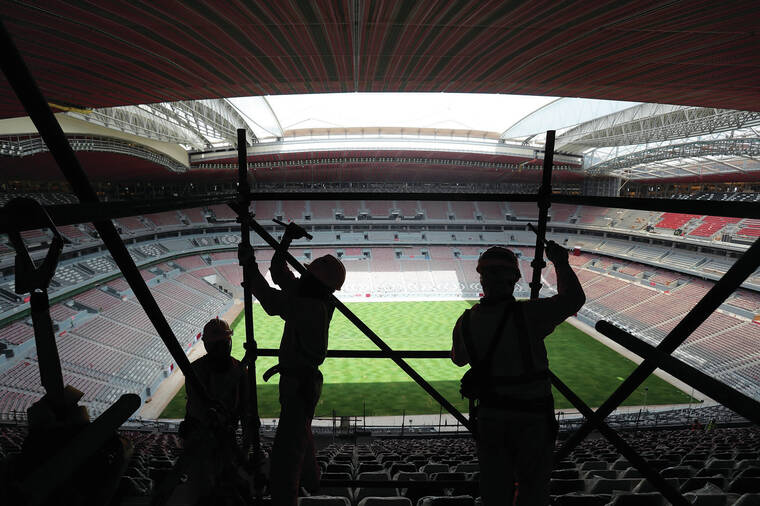DOHA, Qatar — A top Qatari official involved in the country’s World Cup organization has put the number of worker deaths for the tournament “between 400 and 500” for the first time, a drastically higher number than any other previously offered by Doha.
The comment by Hassan al-Thawadi, the secretary-general of Qatar’s Supreme Committee for Delivery and Legacy, appeared to come off the cuff during an interview with British journalist Piers Morgan.
It also threatened to reinvigorate criticism by human rights groups over the toll of hosting the Middle East’s first World Cup for the migrant labor that built over $200 billion worth of stadiums, metro lines and new infrastructure needed for the tournament.
In the interview, portions of which Morgan posted online, the British journalist asks al-Thawadi: “What is the honest, realistic total do you think of migrant workers who died from – as a result of work they’re doing for the World Cup in totality?”
“The estimate is around 400, between 400 and 500,” al-Thawadi responds. “I don’t have the exact number. That’s something that’s been discussed.”
But that figure hasn’t been discussed publicly by Qatari officials previously. Reports from the Supreme Committee dating from 2014 through the end of 2021 only include the number of deaths of workers involved in building and refurbishing the stadiums now hosting the World Cup.
Those released figures put the total number of deaths at 40. They include 37 from what the Qataris describe as nonwork incidents such as heart attacks and three from workplace incidents.
One report also separately lists a worker death from the coronavirus amid the pandemic.
Al-Thawadi pointed to those figures when discussing work just on stadiums in the interview, right before offering the “between 400 to 500” death toll for all the infrastructure for the tournament.
In a later statement, the Supreme Committee said al-Thawadi was referring to “national statistics covering the period of 2014-2020 for all work-related fatalities (414) nationwide in Qatar, covering all sectors and nationalities.”
Since FIFA awarded the tournament to Qatar in 2010, the country has taken some steps to overhaul the country’s employment practices. That includes eliminating its so-called kafala employment system, which tied workers to their employers, who had say over whether they could leave their jobs or even the country.

